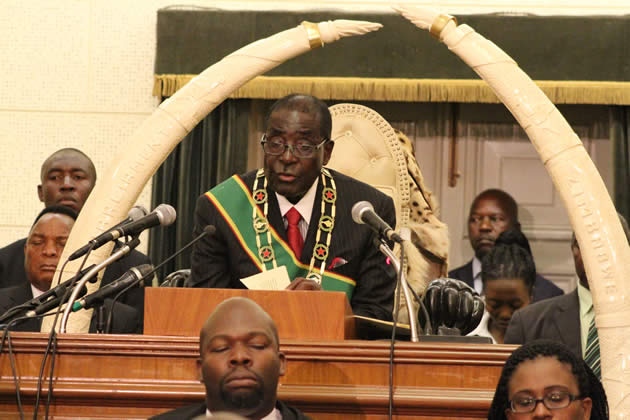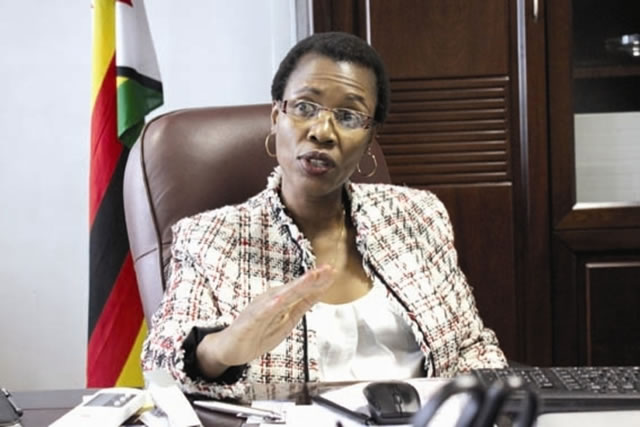President’s question time for 8th Parly


President Mugabe delivers his speech during the official opening of the First Session of the 8th Parliament
Zvamaida Murwira Senior Reporter
PARLIAMENT will soon introduce a Presidential question and answer session and compel all legislators to declare their assets as part of efforts to foster transparency and curb corruption.
Clerk of Parliament Mr Austin Zvoma said they were working on new Standing Orders governing Parliament, one of which entailed modalities in which the President would respond to questions in line with provisions of the new Constitution.
Mr Zvoma was responding to questions from legislators during an induction workshop for legislators.
Senator Agnes Sibanda (MDC-T) had asked if it was possible to have the President come and respond to questions legislators might have.
Sen Sibanda said in other countries, legislators have the opportunity to interface with the President.
Her question also came in the wake of concerns raised by backbenchers and past presiding officers over the failure by some Government ministers to come and answer questions during the weekly Wednesday question time.
In response, Mr Zvoma said the new Constitution actually provided for the President to come and answer questions from backbenchers.
“Presidential Question Time — it is there in the Constitution. There is a provision now that Parliament may have Presidential Question Time. We are beginning to implement some of the new provisions in the Constitution.
“This is an opportunity. It has to be structured in a way that it serves the purpose,” he said.
The provision is in terms Section 140 (3)of the Constitution that deals with Presidential Addresses and Messages to Parliament which reads, “The President may attend Parliament to answer questions on any issue as may be provided in Standing Orders.”
Presiding officers have in the past implored Government ministers to attend the question and answer session to respond to questions from backbenchers.
In his speech, National Assembly Speaker Cde Jacob Mudenda told the legislators that members of the executive were, in terms of the new Constitution, bound to attend Parliament to respond to questions.
He said in terms of Section 119 (3) of the new Constitution, all institutions and agencies of the State and Government at every level were accountable to Parliament.
“The Constitution also enjoins in Section 107 (2) that all members of the Executive must attend Parliament ‘Every Vice President, Minister and Deputy Minister must attend Parliament and parliamentary committees in order to answer questions concerning matters for which he or she is collectively or individually responsible,” said Cde Mudenda.
He said as part of measures to ensure transparency and accountability he would put in place guiding rules that would compel legislators to declare their assets.
“It is, therefore, my expectation, and commitment that during the First Session of this Parliament that mechanisms will be expeditiously finalised and put in place to compel Honourable Members of Parliament to declare their assets. Only through that self transparency, will we deserve and live to that epithet. This will send a clear message that this Parliament will not condone any form of corruption,” Cde Mudenda said.
“After all, both the Constitution and Standing Orders oblige all of us as public officers to do so practically and not by lip service.”










Comments